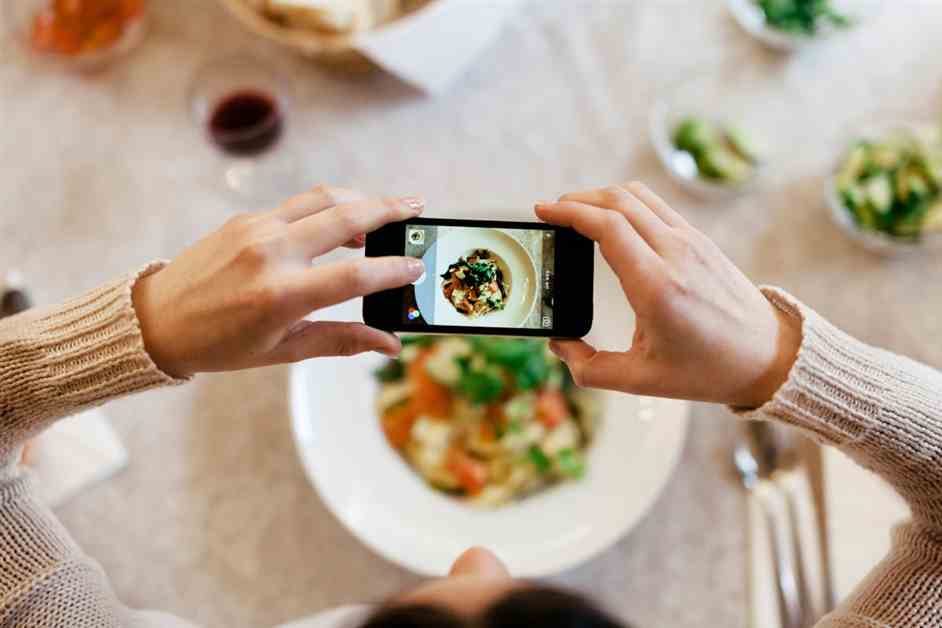Why Taking a Photo of Your Plate is Good for You
Published in the American Journal of Clinical Nutrition, this research reveals that taking photos of your meals is not only a popular practice on social media, but also an effective method to assess nutritional intake. Researchers measured the weight of meals served to participants for breakfast, lunch, and dinner during a day. Participants then compared different technological methods to remember what they had eaten in the past 24 hours. One of these methods involved using the Food Record mobile app to take photos of their meals. These photos were then analyzed by a dietitian researcher.
The study showed that the accuracy of nutritional intake estimation was much higher for participants who used photos compared to those who relied solely on their memory. Clare Whitton, the study’s lead author and doctoral candidate, emphasized that this research, the largest of its kind using the Food Record app, could transform the way we collect dietary data. “Accurate and reliable data on population nutrition is essential to help people optimize their health,” she said. “People sometimes struggle to remember what they ate, but this study shows that dietary assessment can be accurate, especially when we help the person by asking them to take a photo of what they ate.”
While the photo analysis was conducted by experts, the team is currently working with Purdue University in the United States to develop artificial intelligence capable of automating this process. Professor Deborah Kerr, the study’s lead and co-creator of the Food Record app, described this innovation as a major breakthrough in understanding eating habits. “It is much easier for people to track what they consume when they only have to take photos for the day,” she explained. “It will become even easier when we start fully automating the analysis of food items in the photos.”
According to Kerr, these technological advancements will not only help capture the eating habits of populations better but also offer more precise dietary advice to individuals looking to improve their diet. “This research highlights the benefits of images; this is the path we are taking to get an accurate picture of what people eat,” she concluded.
This study paves the way for increased use of technology to enhance nutrition and public health, making dietary tracking both more accessible and more accurate.





















